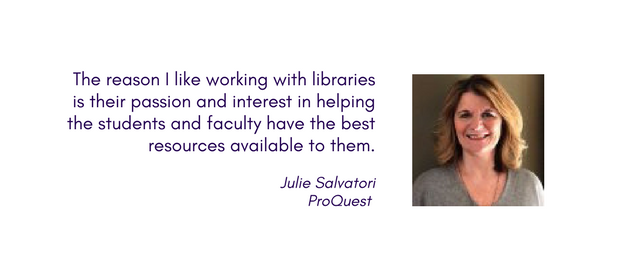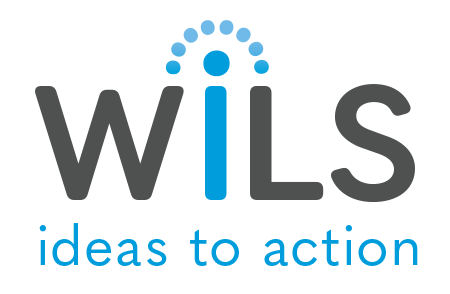
At WiLS, we want to bring valuable information to our library partners, including information about the missions and big ideas of the vendors they may already do business with. Each month, WiLS interviews a vendor partner in order to bridge the gap and open the door to valuable collaborations. This month, we are delighted to share insights from Julie Salvatori, Account Manager with ProQuest.
Tell us about your company’s background.
ProQuest was founded almost 80 years ago when it commercialized the use of microfilm — then a cutting-edge technology — for research material. This was a pivotal milestone for libraries and researchers. Print works – books, newspapers, dissertations — that were susceptible to aging could be preserved indefinitely and distributed to virtually any library. Through indexing, the contents could be searched quickly, simplifying the workflow of researchers. Libraries could house significantly larger collections without adding any physical space. And publishers of the works were connected to a much larger audience, increasing their impact.
ProQuest continues this work today, continually testing and implementing new technologies. We curate content that matters to research and learning; simplify the workflows of libraries, students, and researchers; and connect publishers and other content holders with the scholars and students who need their content.
Our business is now 90% digital and our products are used in virtually every research library on the planet – about 26,000 libraries in 150 countries. Our information archive contains an extraordinary breadth of content not available anywhere else – about a billion searchable items, from Stephen Hawking’s and Isaac Newton’s dissertations to Associated Reporter notes during the Fall of Saigon to streaming video produced by the Black Panthers. Our academic platform supports 70 million users conducting a billion searches per year. ProQuest is particularly noted for content such as digital archives of books published from 1470 to 1700, newspapers and dissertations and for pioneering technologies that have advanced information discovery and management in libraries.
ProQuest and its companies and affiliates – Ex Libris, Alexander Street, Bowker — stand for better research, better learning, better insights. ProQuest enables people to change their world.
Why do you, personally, choose to work with libraries?
I am delighted to be working with libraries and wish I would have made the decision years ago! When I was little I wanted to be a librarian and some of my fondest memories are of Gordon that drove the bookmobile in my hometown! Books and libraries are a huge part of my personal life and continue to be today. The reason I like working with libraries is their passion and interest in helping the students and faculty have the best resources available to them. They are always interested in what is new and available and are also just kind and wonderful people to work with. I feel very fortunate to be part of this industry!
What do you like to know about the libraries you work with? What helps you better understand their needs?
I want to know what they have today for resources, so I do my homework before I go to see them, not only what they have with us, but other providers as well. I look at their website to learn about new or growing programs for them. The website is a valuable tool and I also check the news to see where they have been mentioned and what is “hot” for them. After that, I sit down with the librarians and, with the information I have learned, ask questions and then do lots of listening!
What big ideas are being worked on at your company? What problems are being solved?
As video becomes a more and more important tool for research – especially for students – we’ve significantly increased our video content and content partnerships with companies like Sony, A&E, and a lot of small independent houses. We partner with them to stream their content on our video platform designed to support its use in academic settings. We have tools that allow precision searching, easy clip captures for inserting in papers, and quick ways for faculty to create playlists to share with students.
How can librarians become partners in product or training development?
Librarians play a crucial role in the development of our products and services. We partner with librarians when we develop new products or enhance existing products and we invite them to our beta development programs. A good example is our Ebook Central product which was created using feedback provided primarily by librarians.
With our experience working with librarians globally, we do understand some of the issues librarians face, particularly relating to library workflow. Our Training and Consulting Partners do provide advice on library workflow and we have partnered with Librarians in the Middle East and Africa in providing library skills workshops to cover topical library issues.
——————————
This interview is part of a series of interviews with both WiLS library and vendor partners. Your feedback is appreciated. If you have any to offer on this article or suggestions for upcoming interviews, contact Andrea Coffin at acoffin@wils.org.
